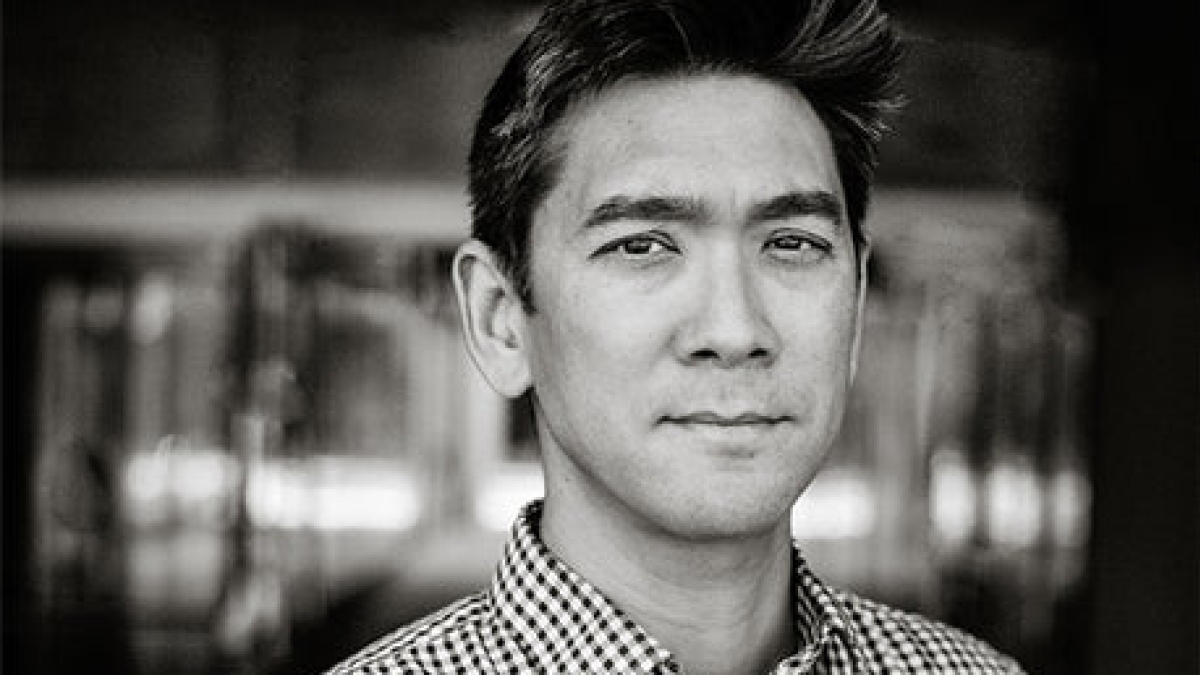ASU faculty member to discuss latest book on drugs in America at upcoming events

Benjamin Y. Fong is an associate teaching professor and Honors Faculty Fellow in ASU's Barrett, The Honors College, as well as an associate director at ASU's Center for Work and Democracy.
Benjamin Y. Fong, associate director at Arizona State University's Center for Work and Democracy, published his latest book, "Quick Fixes: Drugs in America from Prohibition to the 21st Century Binge," with Verso Books this July.
The center will host two events celebrating "Quick Fixes" on Tuesday, Sept. 12: a virtual event from 10:30 a.m.–noon, in which Fong will discuss the book with center Director Michael McQuarrie, and an in-person book launch from 3– 4:30 p.m. in room 135 of West Hall on the ASU Tempe campus.
The in-person event will feature a conversation with Fong, ASU Associate Professor Alexander Aviña and Barrett Honors Faculty Chair Jenny Brian. Both events are free and open to the public. Register to attend the events here.
In advance of those events, Fong, who is also an associate teaching professor and Honors Faculty Fellow in Barrett, The Honors College at ASU, talks about "Quick Fixes" in relation to his broader work as a researcher and teacher.
Note: Responses have been edited for clarity and length.
Question: Like many of your colleagues at Barrett, your research is broadly interdisciplinary. How did you come to drugs as a focus of your research?
Answer: I noticed that more and more people were experimenting with drugs and talking to me about their drug use — people who did not fit the stereotypical mold of “drug user.” And looking into the data, I found indeed that Americans are in the midst of a world-historic drug binge. Across the board, from opioids to amphetamines, marijuana to antipsychotics, Americans are using more drugs than ever and the trends are all going up. At the same time, we’ve got the largest prison system in the world, with a full one-fifth of prisoners in for nonviolent drug offenses. It’s a massive contradiction, and I wrote the book to try to make sense of it.
Q: For several years, you have been teaching an upper-division honors seminar at Barrett on drugs in America. Did teaching this class in some sense inspire "Quick Fixes"?
A: Very much so. Drugs and drug policies are great lenses through which to examine many things about American society, from the egregious marketing practices of large corporations to the particular stressors of everyday life. The ways in which my students have connected with the topic, and in which they can express their ambivalence about American society through their ambivalence about drugs, have really stuck with me and were a key motivator to pursue the project.
Q: The response to the book since publication has been impressive, with a mention in the New York Times and reviews all over; you've also had the chance to talk about it on more podcasts than I can count. Anything surprising to you about the reception so far?
A: Well, I’m still waiting on that devastating review that will get me to rethink some of the core claims of the book, but for now, I’m just pleasantly surprised by the warm reception. One thing that some respondents are quite surprised by is that I’m critical of both drug warriorism, which has historically come from the political right, as well as liberal drug reformism. ... I think we need protection from both the drug war and drug peddling alike, and for that we can’t simply legalize and destigmatize. We need instead broader changes to American society.
Q: If you could prognosticate based on your historical research, what do you imagine the most profound changes in our national relationship with drugs will be over the course of the next few years?
A: I don’t make any predictions in the book, except for one: The psychedelics market is going to expand greatly in the next decade. It’s expected now that MDMA will be FDA-approved in the first or second quarter of 2024, and likely psilocybin will follow soon thereafter. There is an alignment of interests today that makes the moment ripe: earnest psychedelic therapy practitioners from below, who see the healing potential of these drugs, combined with powerful corporate actors at the top, who finally see some profit-making potential in these drugs. And then there’s the broader mental health crisis in America, as well as the decrepit state of psychiatry. The solution is really overdetermined, and so I think we’re going to see a mainstreaming of psychedelics.
More Arts, humanities and education

School of Social Transformation faculty member assumes new title with NSF
School of Social Transformation faculty member and Founding Executive Director of the Center for Gender Equity in Science…

ASU's Neal Lester reflects on life, death of poet Nikki Giovanni
When Neal Lester heard on Monday that poet and activist Nikki Giovanni had died, the news hit hard.Lester, the founding director…

Learning by stepping outside
By Adriana MaestasAmid a world increasingly captivated by all things digital, more than 200 Arizona teachers have crafted…